#dcd9d2 Color Information
In a RGB color space, hex #dcd9d2 is composed of 86.3% red, 85.1% green and 82.4% blue. Whereas in a CMYK color space, it is composed of 0% cyan, 1.4% magenta, 4.5% yellow and 13.7% black. It has a hue angle of 42 degrees, a saturation of 12.5% and a lightness of 84.3%. #dcd9d2 color hex could be obtained by blending #ffffff with #b9b3a5. Closest websafe color is: #cccccc.
-
- R 86
- G 85
- B 82
-
- C 0
- M 1
- Y 5
- K 14
● #dcd9d2 color description : Light grayish orange.
#dcd9d2 Color Conversion
The hexadecimal color #dcd9d2 has RGB values of R:220, G:217, B:210 and CMYK values of C:0, M:0.01, Y:0.05, K:0.14. Its decimal value is 14473682.
| Hex triplet | dcd9d2 | #dcd9d2 |
|---|---|---|
| RGB Decimal | 220, 217, 210 | rgb(220,217,210) |
| RGB Percent | 86.3, 85.1, 82.4 | rgb(86.3%,85.1%,82.4%) |
| CMYK | 0, 1, 5, 14 | |
| HSL | 42°, 12.5, 84.3 | hsl(42,12.5%,84.3%) |
| HSV (or HSB) | 42°, 4.5, 86.3 | |
| Web Safe | cccccc | #cccccc |
| CIE-LAB | 86.748, -0.21, 3.795 |
|---|---|
| XYZ | 65.959, 69.495, 70.908 |
| xyY | 0.32, 0.337, 69.495 |
| CIE-LCH | 86.748, 3.801, 93.161 |
| CIE-LUV | 86.748, 2.107, 5.746 |
| Hunter-Lab | 83.363, -4.653, 7.923 |
| Binary | 11011100, 11011001, 11010010 |
Color Schemes with #dcd9d2
Alternatives to #dcd9d2
Below, you can see some colors close to #dcd9d2. Having a set of related colors can be useful if you need an inspirational alternative to your original color choice.
#dcd9d2 Preview
This text has a font color of #dcd9d2.
<span style="color:#dcd9d2;">Text here</span>This paragraph has a background color of #dcd9d2.
<p style="background-color:#dcd9d2;">Content here</p>This element has a border color of #dcd9d2.
<div style="border:1px solid #dcd9d2;">Content here</div>.text {color:#dcd9d2;}.background {background-color:#dcd9d2;}.border {border:1px solid #dcd9d2;}Shades and Tints of #dcd9d2
A shade is achieved by adding black to any pure hue, while a tint is created by mixing white to any pure color. In this example, #0a0908 is the darkest color, while #fefefe is the lightest one.
-
#0a0908
#0a0908rgb(10,9,8) -
#151410
#151410rgb(21,20,16) -
#201e19
#201e19rgb(32,30,25) -
#2b2822
#2b2822rgb(43,40,34) -
#36332a
#36332argb(54,51,42) -
#413d33
#413d33rgb(65,61,51) -
#4c473b
#4c473brgb(76,71,59) -
#575244
#575244rgb(87,82,68) -
#625c4d
#625c4drgb(98,92,77) -
#6d6655
#6d6655rgb(109,102,85) -
#79705e
#79705ergb(121,112,94) -
#847b66
#847b66rgb(132,123,102) -
#8f856f
#8f856frgb(143,133,111)
-
#978e7a
#978e7argb(151,142,122) -
#a09885
#a09885rgb(160,152,133) -
#a9a190
#a9a190rgb(169,161,144) -
#b1aa9b
#b1aa9brgb(177,170,155) -
#bab4a6
#bab4a6rgb(186,180,166) -
#c2bdb1
#c2bdb1rgb(194,189,177) -
#cbc6bc
#cbc6bcrgb(203,198,188) -
#d3d0c7
#d3d0c7rgb(211,208,199) -
#dcd9d2
#dcd9d2rgb(220,217,210) -
#e5e2dd
#e5e2ddrgb(229,226,221) -
#edece8
#edece8rgb(237,236,232) -
#f6f5f3
#f6f5f3rgb(246,245,243) -
#fefefe
#fefefergb(254,254,254)
Tones of #dcd9d2
A tone is produced by adding gray to any pure hue. In this case, #d9d8d5 is the less saturated color, while #fee7b0 is the most saturated one.
-
#d9d8d5
#d9d8d5rgb(217,216,213) -
#dcd9d2
#dcd9d2rgb(220,217,210) -
#dfdacf
#dfdacfrgb(223,218,207) -
#e2dbcc
#e2dbccrgb(226,219,204) -
#e5ddc9
#e5ddc9rgb(229,221,201) -
#e8dec6
#e8dec6rgb(232,222,198) -
#ebdfc3
#ebdfc3rgb(235,223,195) -
#eee0c0
#eee0c0rgb(238,224,192) -
#f2e2bc
#f2e2bcrgb(242,226,188) -
#f5e3b9
#f5e3b9rgb(245,227,185) -
#f8e4b6
#f8e4b6rgb(248,228,182) -
#fbe5b3
#fbe5b3rgb(251,229,179) -
#fee7b0
#fee7b0rgb(254,231,176)
Color Blindness Simulator
Below, you can see how #dcd9d2 is perceived by people affected by a color vision deficiency. This can be useful if you need to ensure your color combinations are accessible to color-blind users.
